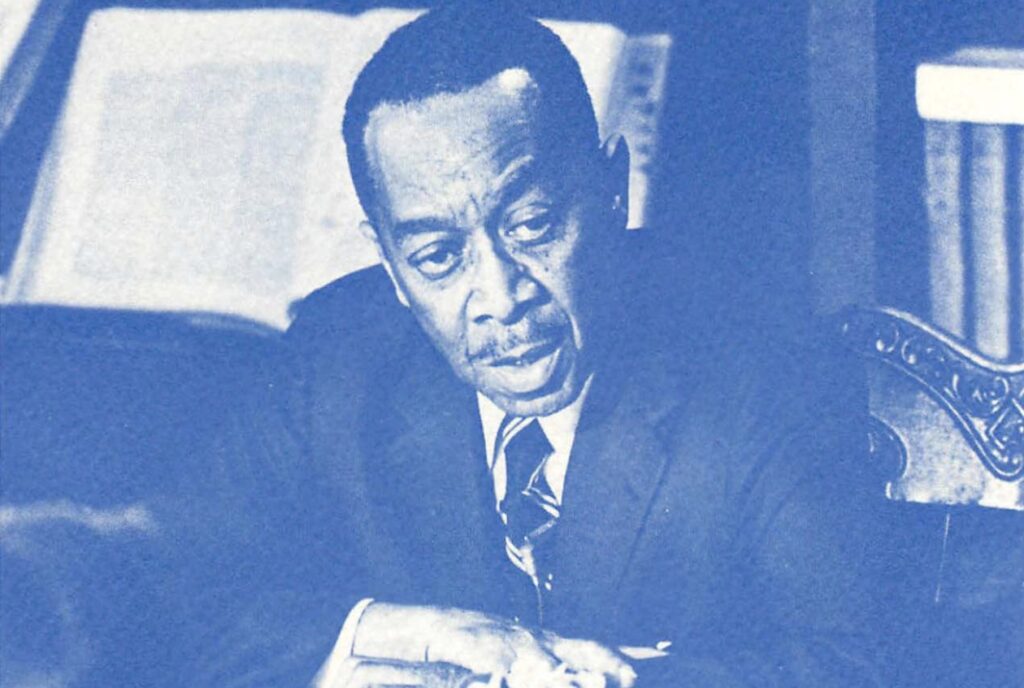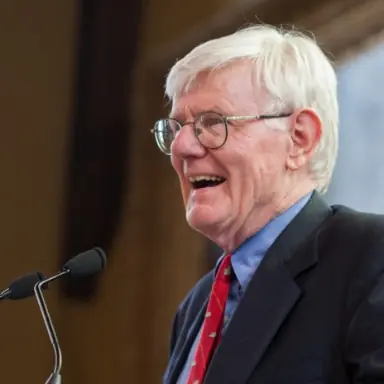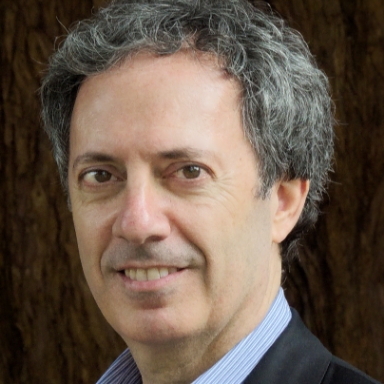Democracy and the American Revolution
Introduction – Yuval Levin
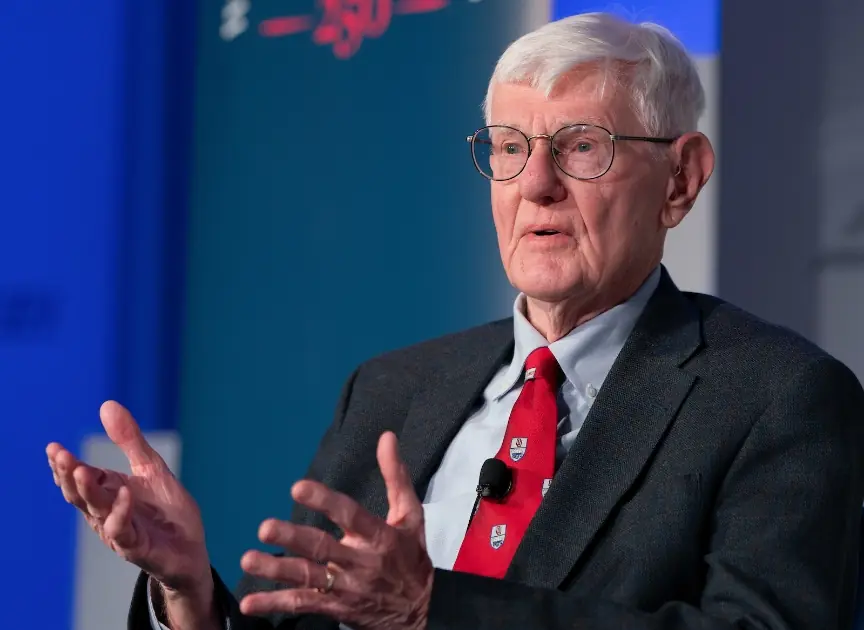
July 4, 2026, will mark the 250th anniversary of the Declaration of Independence and, therefore, of the United States of America. That we can point to such a distinct starting point marks us as a modern nation, perhaps the first modern nation: No countries older than the United States, but almost all countries younger, can claim to know in this way exactly when they were born.
The Declaration itself insists it does not mark the beginning of the American people as a distinct society, but only one of those moments when
it becomes necessary for one people to dissolve the political bands which have connected them with another, and to assume among the powers of the earth, the separate and equal station to which the Laws of Nature and of Nature’s God entitle them.
But this was a strategic understatement, to put it mildly. There had never really been any such moment before, and there is no prior example of a people declaring to the world its reasons for becoming a newly independent nation. The American Revolution was essentially the first successful colonial revolt in the known history of humanity. And the colonists chose to announce their rebellion by declaring a set of universal truths about humanity and then rooting their new nation in those bold assertions. It was an even bigger moment than the Declaration claimed.
That we can mark the anniversary of such a moment offers us an opportunity for gratitude and celebration. The authors of the Declaration of Independence, and the people whom they led and represented, would surely have been surprised that their achievement has lasted for two and a half centuries—and that the nation they launched has become the most prosperous and dynamic society in history. We should be thankful to be the beneficiaries of their sacrifices and to have the chance to build on what they left us.
But to do that well, we should also treat this anniversary as an opportunity for reflection and thought. We should consider just what it was that began 250 years ago—what the American Revolution involved and achieved, what the nation it created meant at its origin, what it has come to mean since, and what it may mean in the future. This book, and the series of which it is a part, aims to reflect on precisely those questions.
That may sound like a strangely intellectual way to celebrate a birthday, but it is actually a distinctly and familiarly American form of patriotism. This country has always offered its people fodder for serious thought, and Americans have always looked on our country as both the home we love because it is ours and a kind of sociopolitical achievement that must be measured against its ideals. That our nation’s 250th birthday will be a time for asking whether we are living up to those ideals is only natural.
But this book is also a distinctly intellectual form of celebration because it is the work of a community of scholars. The American Enterprise Institute is a venue for reflection—both theoretical and practical—on how the United States could best live up to its promise and how its people could be more happy, virtuous, free, and safe. We know that the nation’s semiquincentennial will be marked by different individuals and groups in different ways, but in thinking about what our particular contribution might be, it seemed perfectly obvious that it would need to be an enduring intellectual product.
This has been the impetus behind AEI’s “We Hold These Truths: America at 250” initiative. Over several years leading up to the anniversary, we are inviting scholars both within AEI and from other institutions to take up a series of themes important to understanding the American Revolution. These scholars represent various fields and viewpoints, so they will approach each of these themes from various angles that could allow their work in combination to offer a broad field of vision on the questions they address. The papers they produce will be published in a series of edited volumes intended to help Americans think more deeply and clearly about our nation’s origins, character, and prospects.
Democracy and the American Revolution is the first of those books. Its chapters began as papers presented at an AEI conference held in Washington, DC, on November 15, 2023. Further volumes will consider the American Revolution in relation to other themes, such as religion, natural rights, the legacy of slavery, and the Constitution.
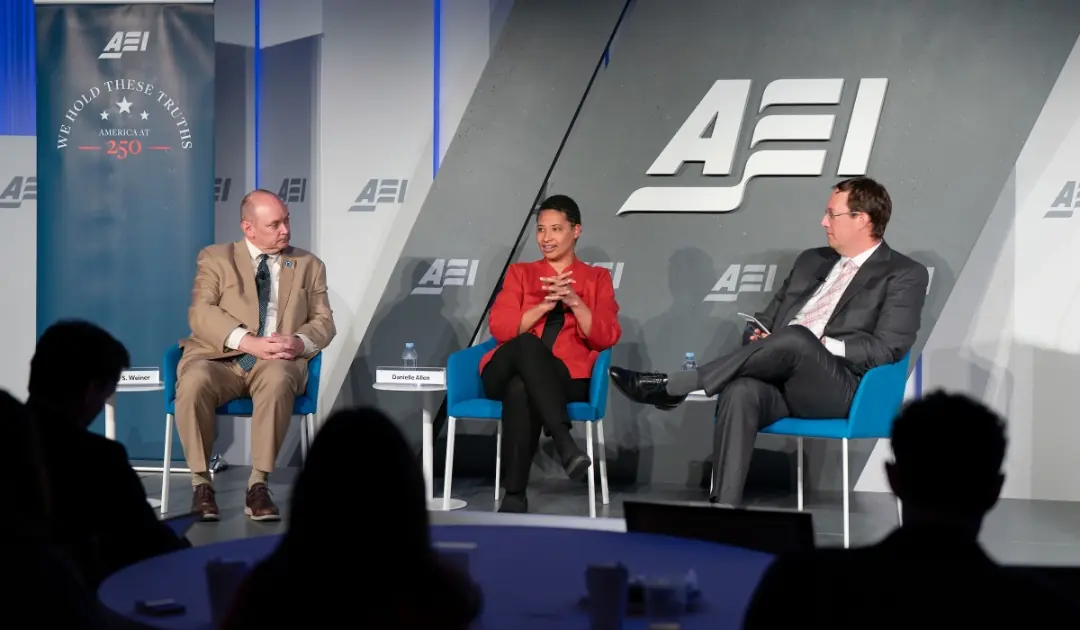
Democracy is our first theme because its connection to the American founding, while essential, is more complicated than it might first seem. The American revolutionaries launched their rebellion against Britain at least in some part as the result of what they took to be a democratic deficit: They objected to being taxed without being represented in Parliament. But the Declaration of Independence does not present itself as founding a democracy. Rather, it asserts indifference to particular forms of government, insisting that a people finding themselves misgoverned have the right “to institute new Government, laying its foundation on such principles and organizing its powers in such form, as to them shall seem most likely to effect their Safety and Happiness.”
But here, too, the Declaration seems to engage in a kind of calculated understatement. The insistence that a legitimate government must secure the rights of its people and facilitate their safety and happiness places rather strict constraints on the range of forms it could plausibly take. And the particular complaints lodged against the British king sketch out by implication some of the boundaries of that range. We are told, for instance, that the king “has dissolved Representative Houses repeatedly, for opposing with manly firmness his invasions on the rights of the people,” and that he “has refused for a long time, after such dissolutions, to cause others to be elected; whereby the Legislative powers, incapable of Annihilation, have returned to the People at large for their exercise.” If these are reasons to rebel against the king, they certainly suggest a broadly democratic conception of the character of political legitimacy.
If we take democracy, as we should, to describe more than a formal system of government, it emerges that much more prominently in the drama of the American Revolution. If it is, as Alexis de Tocqueville suggested, more of a “social state,” then surely we would have to say that the spirit of democracy was prominent among both the causes and effects of the American Revolution—indeed that, in a sense, it is what that revolution unleashed upon the world. Democracy is, in that respect, the natural first theme to take up in considering our founding’s legacy.
In the chapters that follow, five eminent scholars of history and political thought explore how we ought to understand democracy and its connection to the American Revolution.
Gordon S. Wood considers the varied meanings of democracy and the range of ways they shaped the actions, ideas, and self-understandings of the American people in the era of the Revolution. He suggests that we should think about that era not as a single moment but as a period of gradual development in which a set of democratic concepts and a set of American practices and institutions shaped each other.
Bryan Garsten then explores the nature of the revolutionary spirit itself—that spark of independence that moved the founding generation to act boldly and has reappeared at key moments in our history. He argues that understanding that spirit as a kind of episodic passion is crucial to grasping the deepest meaning of the Declaration of Independence for our time.
Peter Berkowitz considers some of the ways we have misunderstood the Declaration, and he proposes to correct those by drawing on a set of both classical and modern political ideas. These, he believes, can help us better comprehend the nature of modern liberal democracy and the central place of the American founding in defining it.
Danielle Allen digs further into the Declaration itself and illuminates John Adams’s underappreciated role as its coauthor, alongside Thomas Jefferson. She argues that, by better appreciating the part that Adams played in conceiving and articulating some of the Declaration’s key concepts, especially the idea of the pursuit of happiness, we could more fully understand the ways that document sowed the seeds of the democratic age we inhabit.
And finally, Greg Weiner argues that the Declaration of Independence should be understood as a thoroughly democratic document. Drawing on Abraham Lincoln, he writes that the Declaration is an argument intended to persuade a majority to act together in defense of the fundamental rights of all human beings. It is therefore rooted in a conception of politics oriented to both pursuing the common good of society and securing the core natural rights of individuals, and it suggests that the two need not be contradictory.
The breadth of the arguments advanced in these chapters offers a sense of how broad the meaning of democracy might be. And their depth can help us see how profound an event the American founding was—and how important are the continuing stakes of the American experiment.
On this momentous anniversary, we are compelled to ask ourselves what kind of nation was brought into the world 250 years ago. “A democratic nation” certainly offers a strong opening attempt at an answer. Like this book, that answer must be understood as only one crucial part of a larger whole—but one that comes first with good reason.
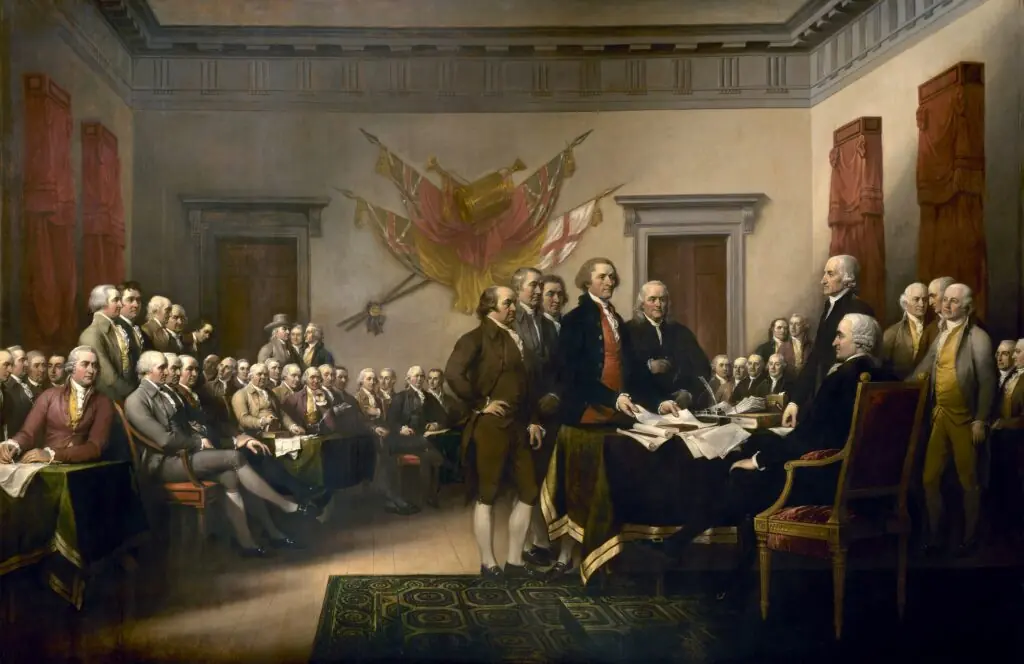
A New Kind of Democracy – Gordon S. Wood
Democracy has many meanings. For some, it may merely suggest a government in which all adults can vote. For others, it may mean simply majority rule, or it may denote a system of government that protects minorities of all sorts—the assumption being that majorities can take care of themselves. For still others, democracy may signify the protection of individual rights and liberties—and signify that, without these protections, voting and participation in government are meaningless. Finally, for many Americans, democracy may mean much more than all these political mechanisms and principles, all the voting and all the rights. It may transcend systems of government and become a shorthand term that encompasses everything valuable about society and culture: its freedom, its equality, and its respect for common, ordinary people.
All of these meanings of democracy have relevance today, and the American Revolution created or enhanced all of them. In not much more than a decade or two following the Declaration of Independence, America experienced the birth of modern democracy in its various expressions and meanings. The Revolution created democracy as we understand it today, as an all-powerful faith, a set of sacred principles and beliefs that define and embrace not just our various governments but our entire society and culture as well.
From Subjects to Citizens
America today may be all about democracy, but that was not true at the time of the Declaration of Independence. Creating democracy was never the Revolution’s goal; protecting liberty was. In 1776, the revolutionaries scarcely ever mentioned the terms “democracy” or “democratic.” When they did use the word “democracy,” they, like the ancient Greeks, often used it disparagingly. Sometimes they used it to denote the lowest order of society, and at other times they associated it with mobs and the civil disorder that preceded a dictator’s takeover. At best they meant by it only a technical term of political science—a government ruled literally by the people at-large.
Many enlightened Americans agreed that ideally the people ought to govern themselves directly, but they realized that democracy in this literal sense was achieved only in the Greek city-states and New England town meetings. Actual self-government or simple democracy was not feasible for any large community. As one American polemicist stated in 1776, even the great 17th-century English radical Whig Algernon Sidney had written that he had known of “no such thing” as, “in the strict sense, (that is, pure Democracy,) where the People in themselves, and by themselves, perform all that belongs to Government,” and if any such democracy had ever existed in the world, he had “nothing to say for it.”1
America did not become a democracy in 1776 but a republic, or more accurately, 13 independent republics. Beyond repudiating hereditary rule, republicanism did not prescribe a particular form of government. It was more of a spirit, a set of ideals and values for shaping society and culture. It challenged the primary assumptions and practices of monarchy—its hierarchy, its inequality, its devotion to kinship, its patriarchy, and its patronage. It offered new conceptions of the individual, the family, the state, and the individual’s relationship to the family, the state, and other individuals.
(more…)The Spirit of Independence and the Rhythm of Democratic Politics – Bryan Garsten
It is only natural to wonder, after 250 years, how long the American republic will last. While we may sometimes imagine the possibility of a “perpetual republic,”1 the most reliable prediction about any country—or about any state of affairs—is the one Abraham Lincoln grappled with at the end of a speech in Wisconsin in 1859: “This, too, shall pass away.”2 It is doubtful that our country has finally discovered an escape from that ultimate fate.
Still, even if we begin with the fatalistic insight that our nation is mortal, there is room for us to wonder where in its life cycle we find ourselves today. Were the United States to last as long as ancient Sparta, for example, the 250th anniversary of its independence would mark less than half its lifespan. It is possible that future historians will regard our time, with all its political struggles and disappointments, as merely one crisis among many, perhaps as the last part of the first working out of the principles of the founding.
“There is consolation in the thought that America is young,” said Frederick Douglass at a July Fourth celebration in 1852.3 At that point the country was just 76 years old, but it must have seemed to many observers that the American experiment was already nearing its end. The republic had failed to realize its founding ideals and was foundering on a deep sectional divide. Despite that, Douglass, a former slave who had experienced the country’s most profound failure firsthand, asked his audience to imagine a longer future for the country. Can we ask the same of ourselves today?
Imagining a longer future for a democratic United States seems more plausible if we rediscover a feature of democracies that was at one time familiar but is now less often noted—the tendency to fall into cycles of institutional dysfunction and popular discontent, followed by reform. There is a certain rhythm to democratic politics.4 There are fits and starts, falls into corruption followed by recoveries. There is no guarantee of recovery, of course—the rhythm offers us no justification for complacency. But there is, still, the possibility of an upswing, if we can find our way toward it.
What drives these cycles? In this chapter, I would like to draw attention to the spirit of independence. Theorists of democracy, focused on the importance of equality, solidarity, and mutual interdependence, sometimes imagine they can live without this potentially dangerous sentiment. They forget that the democratic world they live in would never have been established without it, and they too often ignore the ways that both elites and democratic majorities can spark new bursts of that spirit as a reaction to their overzealous rule.
Libertarians, on the other hand, tend to forget that the spirit of independence is and ought to be an episodic passion, at least as a dominant force in our national life. It rouses us periodically to protect ourselves and keep our rulers decent, but it does not suffice for stable rule or fair politics. Neither solidarists nor libertarians situate the spirit of independence within the rhythm of democratic politics. They evaluate the passion for independence, either positively or negatively, as if it were a steady demand rather than a periodic rising up.
The Declaration of Independence is the exemplary American articulation of this spirit. Both Thomas Jefferson, its principal author, and Lincoln, its most important interpreter, assumed that republics tend to decay but can also be renewed. The tendency toward corruption, which spurs declarations of independence in response, produces the rhythm I mean to highlight. In looking for a way to manage this rhythm, we find ourselves rediscovering an important purpose for a constitution.
(more…)Democracy, Freedom, and the Declaration of Independence – Peter Berkowitz
The American Declaration of Independence and the nation it formally brought into existence in July 1776 changed the course of democracy in the West. Before the Declaration and the birth of the United States, democracy generally had a bad name. It was considered an unstable regime prone to descent into demagoguery and dictatorship. After the American founding, however, democracy came to be associated with the basic requirements of political justice. Crucial to the transformation of democracy’s reputation was the distinctive alliance that the Declaration forged between democracy and the defining conviction of the modern tradition of freedom—of which the Declaration is a landmark document—that human beings are by nature free and equal.
That alliance gave birth to the regime known as liberal democracy. Today, we take the alliance for granted so much that Americans typically refer to their regime as a democracy, without modification. This simplification, however, obscures the tension between the protection of what the Declaration calls unalienable rights—the rights inherent in all human beings—and the rule of the majority. The use of the term “democracy” when liberal democracy is meant also cloaks the advantages to democracy that derive from its alliance with unalienable rights.
Over the nearly two and a half centuries, convictions about unalienable rights that gave birth to the nation but that do not belong to democracy’s original and core meaning have tempered, stabilized, and elevated constitutional government in America. As the United States confronts alarming levels of discord, division, and dysfunction, it is instructive to reconsider the nation’s founding principles. It is also useful to examine influential misconceptions propounded by some intellectuals about the moral and political implications of those principles and seminal lessons—ancient and modern—about democracy and freedom. A better understanding of the assumptions, ideas, and aims that spurred the transformation of 13 British colonies into the world’s freest, most prosperous, and most diverse great power contributes to the restoration of that unity in diversity that remains, as it was at the founding, essential to advancing the public interest. Indeed, study of the Declaration forms a central component of liberal education, the distinctive form of civic education that is central to preserving and improving liberal democracy in the United States.
Clarifying Terms
The “liberal” in liberal democracy—which derives from the Latin liber, meaning free—does not refer to the political left but rather the modern tradition of freedom. That tradition antedates the contemporary distinction between left and right and has largely determined the issues over which the left and right in America have contended. The modern tradition of freedom rests on the conviction that, notwithstanding the countless differences among human beings, all are equal in basic rights. It affirms that the chief task of politics is to secure those rights. This conviction is wide and deep enough to encompass the writings of John Locke, Thomas Jefferson, James Madison, Adam Smith, Edmund Burke, Alexis de Tocqueville, John Stuart Mill, Friedrich Hayek, and Raymond Aron. It captures opinions held in common by most Americans throughout the nation’s history. And of late it has been targeted by critics on both the right and the left as the principal source of the nation’s ills.
(more…)The Adams Declaration: A Guide for Our Times – Danielle Allen
These days, the question of whether the Declaration of Independence can be a continuing guide for our times is highly contested. For some, Thomas Jefferson’s role in its creation means the text is irreparably tainted by the legitimation of enslavement. Yet this reading of the Declaration, and of its historical moment, misses much.
The Declaration offers a story of human agency that speaks as powerfully in our own times as it did to the founding generation—and to people diverse in identity and ideology. Moreover, the Declaration contributed to the crystallization of the abolitionist movement. This is because the Declaration belongs as much to John Adams as to Jefferson. It’s time that we should all come to know the story of the Adams Declaration.
In this chapter, I explain how I came to see the Declaration’s continuing relevance to 21st-century Americans of all backgrounds and share the journey of discovery that then ensued. A deep dive into the text’s history leads to the recognition that Adams was really its prime intellectual architect and that, thanks to Adams, the document became fundamental to the project of abolitionism. Adams never owned human beings, always thought enslavement was wrong, and actively worked to end it in Massachusetts.
This is not to say that either Adams or the document was perfect. In addition to advancing a powerful vision for self-government among free and equal citizens, both Adams and the Declaration also made some philosophical errors. Turning to the Declaration’s text in our own time requires embracing those elements of its argument that the drafters got right but also correcting those components where they went astray.
Night Students and the Thrill of Agency
In 1999, in Chicago, one spring afternoon, I found myself sitting at a board table in a downtown office building with lofty views beside a friendly woman named Kristina Valaitis. About a dozen of us had gathered for a meeting of the Harold Washington Literary Prize Committee. Harold Washington had been the first black mayor of Chicago. Now deceased, he had a book prize named in his honor.
I don’t remember who else was there. I don’t remember the deliberations. I don’t remember what books we adjudicated that day. But I do remember my conversation with Valaitis. She would eventually become a good friend, but that was our first meeting. She was director of the Illinois Humanities Council; I was an assistant professor of classics at the University of Chicago.
Valaitis was trying to establish a night course in the humanities for low-income adults who had fallen out of the educational system and were ready to get back in. The purpose of the course was not vocational instruction but reflection and empowerment. The idea was that students from lower socioeconomic contexts also deserved the chance to develop their powers of reflection and analysis by engaging with a liberal arts education—that is, schooling for free people—just like students at fancy schools, such as the University of Chicago, where I taught. Valaitis was passionate about the program but having trouble finding any university to partner with her. I listened to her description of the program and volunteered immediately to help bring the University of Chicago in.
My much beloved younger cousin Michael was in prison in Southern California at the time, and I was working hard to get him an education behind bars. He had been arrested in 1995 while a junior in high school but completed his GED before his sentencing. He speedily earned every vocational degree on offer in the various facilities he found himself in. But he wanted real learning. He wanted college.
(more…)Lincoln’s Declaration and the Coherence of Democracy – Greg Weiner
Abraham Lincoln’s “Fragment on the Constitution and the Union”1 famously compares the relation between the Declaration of Independence and the Constitution to Proverbs 25:11’s reference to “apples of gold in pictures of silver.” His point is that the mechanisms of the Constitution (the picture) serve the ideals of the Declaration (the apple). This is often understood to indicate Lincoln’s emphasis on individual rights as the lens through which the Constitution should be interpreted. Yet the timing of the fragment, presumed to have been written between his election as president in 1860 and his inauguration in 1861, suggests otherwise. He wrote the fragment at the same time he was drafting his first inaugural address, a full-throated defense of democracy understood as majority rule.2
In that speech, he declared: “A majority, held in restraint by constitutional checks, and limitations, and always changing easily, with deliberate changes of popular opinions and sentiments, is the only true sovereign of a free people.” The nation divided naturally into majorities and minorities on questions over which the Constitution gave the national government jurisdiction. “If the minority will not acquiesce,” Lincoln explained, “the majority must, or the government must cease. There is no other alternative; for continuing the government, is acquiescence on one side or the other.”3
That is also what the Declaration says when read in full. Yet scholarship on Lincoln’s view of the Declaration, the Constitution, individual rights, and the relationship among the three substantially rotates around the assumption of some degree of tension. That is the enduring debate, though contemporarily recast, between Harry Jaffa and his intellectual descendants and those who saw Lincoln’s theory of personal rights as a “derailment” of the American tradition. (With the acerbity for which he was famed, Jaffa was wont to associate these thinkers with John C. Calhoun and describe them with epithets like “neo-Confederate.”)4
Might the very terms of this debate, inescapably inflected with 20th-century controversies, including the Civil Rights Movement and the rise of the Warren Court’s activism in the name of individual rights, miss the Declaration’s point—and, with it, Lincoln’s? Put otherwise: Lincoln might find the terms of the debate over his legacy unintelligible in his own dialect. Lincoln’s position can be articulated simply and, it should be said, entirely in keeping with the teachings of the Constitution’s framers. Participation in democratic self-rule is both a right and the only viable political means of securing, as opposed to simply proclaiming, other rights. Individual rights and the common good are not opposing notions, and neither are individual desires and communal aims. A democratic republic exists to pursue them together.
By considering the terms of this debate, we might not only shed light on Lincoln’s understanding of the Declaration of Independence but also better grasp the character of American democracy and the legacy of our founding.
(more…)Symposium Video
In the inaugural symposium of the “We Hold These Truths: America at 250” initiative held at AEI on November 15, 2023, renowned historians and political scientists explored evolving interpretations of American democracy from the beginning of the American Revolution to the present. AEI’s Yuval Levin and Brown University’s Gordon S. Wood opened the event by discussing how the founders’ conception of democracy changed over time and reconsidering the Constitution as a democratic document. Harvard University’s Danielle Allen and Assumption University’s Gregory S. Weiner examined the Declaration of Independence’s democratic principles by tracing John Adam’s involvement in drafting the Declaration and Abraham Lincoln’s role in interpreting it. The event concluded with a moderated discussion between Hoover Institution’s Peter Berkowitz and Yale University’s Bryan Garsten on Alexis de Tocqueville’s analysis of democracy’s impact on American society and how we should teach the Declaration of Independence today.
The American Revolution: Democratic Politics and Popular Education
By Kenneth B. Clark
In his 1974 Bicentennial Lecture, the psychologist and Civil Rights activist Kenneth B. Clark links the nation’s founding democratic ideals to its ongoing struggle for racial justice. Contending that American democracy depends on educational equality, Clark traces the history of school desegregation efforts from eighteenth-century debates over the education of the enslaved to the landmark Brown v. Board of Education decision, framing the battle for equality as a core narrative within American history. He also identifies the paradoxes that have haunted American democracy, examining moments in the distant and recent past when exalted ideals have clashed with entrenched prejudices and majorities have trampled over minority rights.
Clark argues that it is important to see education as more than just academic instruction, but rather as the key to forging ethical citizens who are capable of self-government. By exploring the intersection of democracy, civil rights, and education, he offers a guide for fulfilling America’s centuries-old promise of equality. Only by confronting the contradictions inherent in the American experiment and prioritizing equal access to education can the nation fully embody its unique founding principles and ensure a democratic future.
